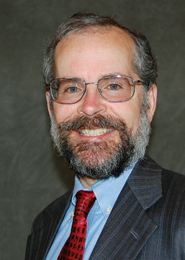(Bloomberg) — Mary Jo Whites blueprint for imposing tighter controls on high-frequency traders and some of the murky venues they inhabit stops short of a crackdown.
The U.S. Securities & Exchange Commissions plan, unveiled by White in a speech last week, advanced some new ideas while borrowing heavily from existing proposals and measures that already have support on Wall Street. While stock exchanges, rapid-fire traders and private trading venues known as dark pools all would come under new scrutiny, White didnt embrace the kind of tighter restraints that have been enacted in countries such as Australia and Canada.
White isnt acting in a vacuum. She is responding to political pressures raised by an investigation by the New York attorney general into whether speed traders prey on slower- moving investors as well as a book by Michael Lewis, Flash Boys, that condemned the role of exchanges and brokers in enabling unfairness. She announced the initiatives even as she said U.S. markets arent rigged and serve the goals of retail and institutional investors.

It makes sense given the current public debate over Flash Boys to point out what the SEC is doing, said James J. Angel, a finance professor at Georgetown University whose research focuses on equity markets and regulation. A lot of this stuff has been in the pipeline, but its good to get the message out that, hey, were on the beat.
The plan includes two rules already in development, including one that would require exchanges and some dark pools to build better protections against technology outages and failures. White also touted a pilot program to test incentives for trading shares of smaller public companies, a measure favored by lawmakers and smaller broker-dealers.
Bank Lawyer
White, a former U.S. attorney for Manhattan who also defended big banks as a defense attorney, embraced other ideas that have been endorsed by some industry participants, including providing investors with detailed maps of how their orders are routed among exchanges and dark pools. Such a rule is needed to ensure that the disclosed information is useful, reliable, and uniformly available on request to all institutional customers, White said.
Wall Street is already on board. Morgan Stanley, whose equities trading unit accounts for about 11 percent of U.S. average daily volume, recommended last year that the SEC require standardized reports of how brokers route orders to be filled. Similarly, White called for having dark pools disclose more about how they process buy and sell orders, a step that has already been adopted by some dark pool operators. KCG Holdings Inc., based in Jersey City, New Jersey, and New York-based Liquidnet Holdings Inc. have said they will publicize their dark-pool rule filings.
More Consensus
The commission has been aware of many of these issues for some time, said Annette L. Nazareth, a partner at Davis Polk & Wardwell LLP and a former SEC commissioner. Over the course of time, there comes to be more consensus around the fact that something needs to be done about these issues.
The new measures would extend the agencys oversight to high-speed proprietary traders who so far have escaped regulation and broaden the agencys authority over algorithms that drive automated trading. White also outlined plans for new restrictions on short-term trading strategies that can disrupt markets and heighten volatility. She said the five-member commission would consider the new rules in the coming months.
She is not suggesting anything that is insane and the real question is implementation, Angel said in a telephone interview. The SEC has so many irons in the fire and they are so under-resourced. The real question is can they actually do it?
Managing Conflicts
Whites speech on June 5 also highlighted the conflicts of interest among brokers and exchanges that provided the theme for Lewiss book. When fees and payments are not passed through from brokers to customers, they can create conflicts of interest and raise serious questions about whether such conflicts can be effectively managed, she said.
But the chairman stopped short of endorsing calls to scrap exchanges maker-taker pricing model, a system of rebates and fees exploited by some high-frequency trading firms. Intercontinental Exchange Inc. chief executive officer Jeffrey Sprecher, whose Atlanta-based company owns the New York Stock Exchange, has said maker-taker encourages trading aimed only at reaping the rebate payments.
Australia, Canada
In some ways, the SEC wont be breaking new ground since other countries already have moved to curb such practices. Australia doesnt allow incentives such as maker-taker, while Australia and Canada have both restricted trading in dark pools. Australia, where the principal exchange enjoys a near-monopoly, also has imposed restrictions on speed traders by charging them for orders that are canceled.
Maker-taker is a highly distortive financial-system model and there is no measurable benefit that is derived from it, said Elmer Funke Kupper, the chief executive officer of Sydney- based exchange operator ASX Ltd.
High-speed traders and their critics are not in total accord, however, and Kupper said the SEC will need a some point to take a stronger stand.
Regulators have to come to terms with the fact that you have to act at a point in time, and youre never going to have perfect information and its going to be impossible to have a consensus, he said.



